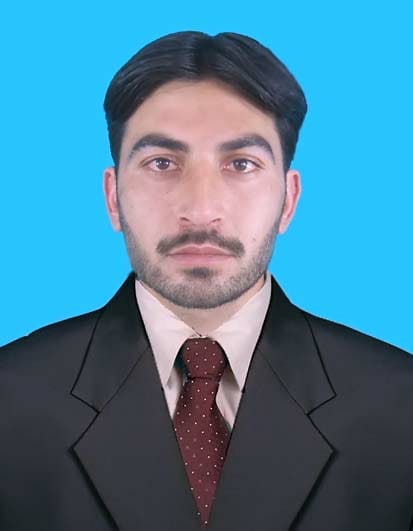Directorate Staff

Dr. Shafa Haider Sawal
Director Registration

Adil Waqas
Anti Quackery Officer

Gul Raheem
Registration Officer
Overview:
The Directorate of Registration is responsible for the registration and regulation of Health Care Establishments (HCEs) under Section 12 of the KP HCC Act 2015, covering both public and private sectors in Khyber Pakhtunkhwa. In addition to registration and regulation, the Directorate is also responsible to combat quacks and illegal medical practices.
Registration Requirement:
The approved requirements for registration and licensing of Health Care Establishments with Khyber Pakhtunkhwa Health Care Commission are outlined in reference manuals specific to each category of Health Care Establishments.
Categories of Health Care Establishments:
The Commission classifies health facilities based on nature of services they provide to public. The classification of HCEs and registration fee structure are as follows:
Classification and fee structure of HCEs (Click here)
Registration Process:
Registration with the Commission is online. The owner of HCE shall apply through the online portal (https://registrationhcc.kp.gov.pk) starting with creating a user account, followed by email verification, submission of registration form with the required documents, and payment of the fee using the system-generated challan. Once the application is submitted, the Commission issues a registration certificate within 30 days, if the criteria are met.
Procedure for Changes in Registration of HCEs:
For any changes in the registration of Health Care Establishments (HCEs), the owner must submit a written application to the Commission. The application must include the original registration certificate and a deposit receipt of 10,000 rupees. (Click to download deposit slip)
Quackery:
Under section 28(2) of the Khyber Pakhtunkhwa Health Care Commission Act, 2015 quackery is non-bailable and cognizable offence, and according to section 28(1), quackery by a person, who does not qualify the provisions of this Act shall be punished with imprisonment, which may extend to six months or with fine, which may extend to one million rupees, or with both. All law Enforcement Agencies of Government shall provide assistance to the Commission (section 27).
Definition of Quack:
As per sub-section (g) of section 2 of the Health Care Commission Anti-Quackery Regulations, 2022, quack means if he/she is:
- Duly qualified but not validly registered with Pakistan medical & Dental Council/PMC, Council for Tibb and Homeopathy, and Nursing Council; or
- Neither qualified nor registered with the relevant council; or
- Duly qualified and validly registered but providing services beyond the provisions of his /her registration; or
- Neither duly qualified nor validly registered but practicing under the name of a qualified and validly registered medical practitioner.
Anti-quackery Strategy:
The Khyber Pakhtunkhwa Health Care Commission has developed and Gazette notified the Anti-quackery regulations, 2022 and has established the Anti-quackery Cell under the Directorate of Registration. KP HCC is determined to eradicate quackery through multi-pronged strategy:
- Excluding quacks through registration and licensing of qualified healthcare professionals;
- Conducting regular anti-quackery campaigns throughout the province;
- Online and manual complaint management system to ensure that unqualified/unregistered practitioners and unlawful health care establishments are brought to justice.
- Public awareness to join hands with KP HCC for eradication of the menace of quackery and ensuring safety of patients. This can be achieved through fulfilling their social obligation of not to get treatment from quacks and identify malpractices and maladministration in healthcare settings.
Frequently Ask Questions:
1. What are the requirements for GP and Specialist Clinics?
The requirement for a General Practitioner (GP) Clinic is a person duly qualified as an MBBS or equivalent duly registered with the Pakistan Medical and Dental Council (PMDC). For Specialist Clinic, the service provider must have a postgraduate qualification in the relevant specialty, duly recognized by the PMDC.
2. What are the registration requirements for a Clinical Pathology Laboratory?
For detailed registration requirements of a Clinical Pathology Laboratory, please refer to the MSDS for Clinical Laboratories available at https://hcc.kp.gov.pk/downloads/
3. What are the registration requirements for a Radiological Centers?
For detailed registration requirements of a Radiological Diagnostic Centre, please refer to the MSDS for Radiological Diagnostic Centres available at https://hcc.kp.gov.pk/downloads/

